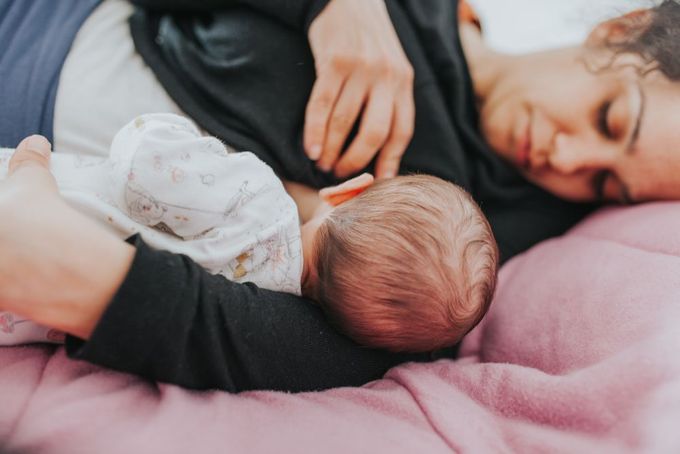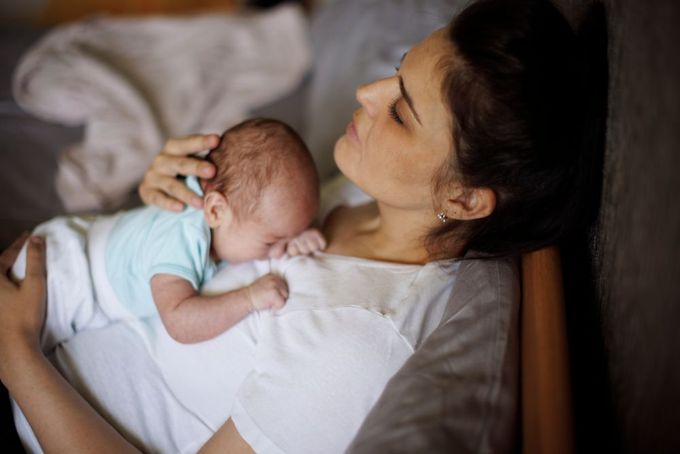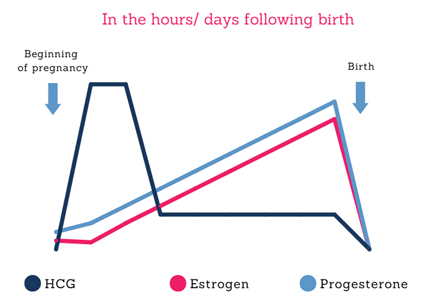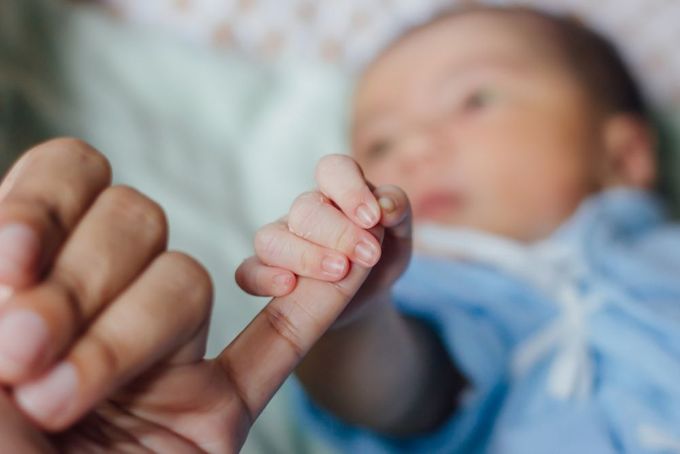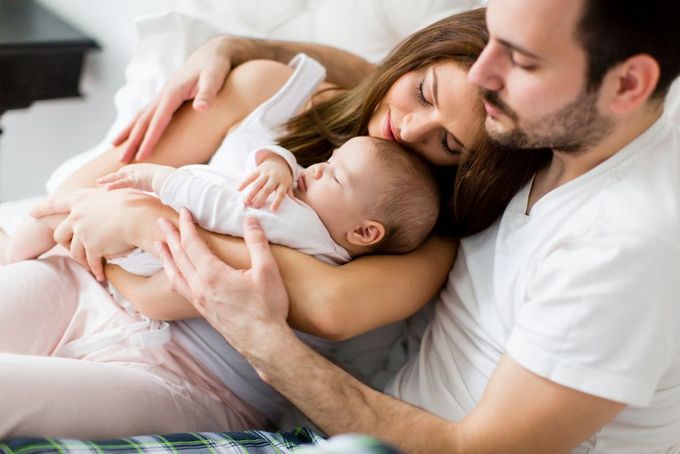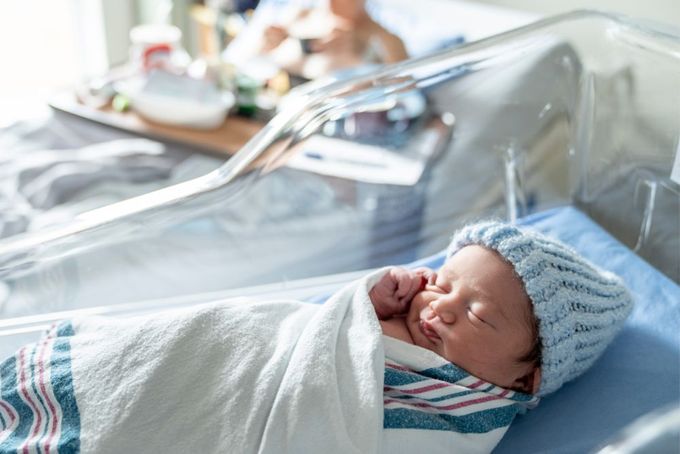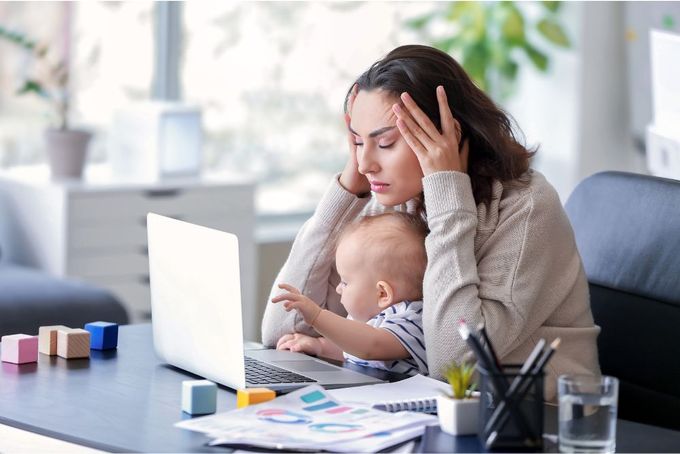Not Just the Baby Blues: What Every New Mum Should Know About Postnatal Depression
by Hannah Fenner, a Fertility Awareness Educator and founder of The Body Bluprint
Updated September 2, 2025
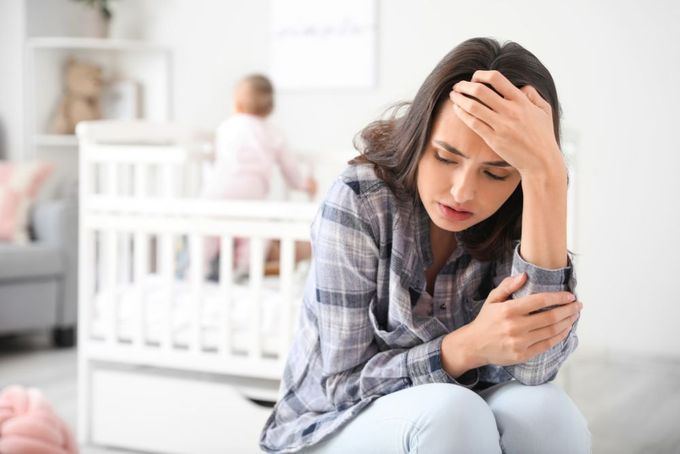
Bringing a new baby into the world is supposed to be the happiest time of your life, right? That’s what we’re often told. But for many women, the early months after birth can feel incredibly heavy, confusing, and overwhelming. If you’re not feeling the way you thought you would, you’re not broken, and you’re definitely not alone.
Let’s talk honestly about postnatal depression — because maternal mental health matters.
What postnatal depression is (and isn’t)
What causes it
Warning signs to look out for
How we can normalize asking for help
What is Postnatal Depression?
Let’s break down what Postnatal Depression (PND) is. It’s also commonly known as Postpartum Depression, and it’s a type of depression that occurs after childbirth.
It’s different from the prevalent "baby blues" — a short-lived period of feeling weepy, moody, or anxious in the first week or two after having a baby.
The baby blues are triggered by hormonal shifts and usually pass on their own. But if you're still feeling depressed weeks later, or new symptoms appear, it could be PND.
Importantly, postnatal depression can start anytime in the first year after birth, not just in the first few weeks.
Common Signs of Postnatal Depression
Signs of Postnatal Depression might include:
A persistent feeling of sadness or low mood
Loss of interest or pleasure in things you used to enjoy
Feeling mentally or physically exhausted but unable to sleep
Trouble concentrating or making decisions
Feeling disconnected from your baby or struggling to care for yourself
Withdrawing from friends and family
Frightening thoughts (like harming yourself or your baby) - we urge you to always seek help in this situation
Why Does Postnatal Depression Happen?
There’s no single cause for PND. It’s often a mix of physical, emotional, and environmental factors, some of which may surprise you:
1. Hormonal Crash After Birth
The hours and days after birth trigger the single biggest hormonal drop you will ever experience.
If you felt weepy, sensitive, or out-of-sorts, you can 100% see why — it’s not just "in your head", it’s a real, biological shift.
During pregnancy, hormones like HCG (Human chorionic gonadotropin), estrogen, and progesterone skyrocket up to 300% higher than normal.
As soon as the placenta is delivered, those hormone levels plummet back to baseline (or even lower) within 1–2 days.
HCG disappears almost completely.
Estrogen and progesterone, which have been keeping you feeling somewhat balanced, crash down dramatically.
This hormonal free fall is more intense than puberty, menopause, or any other hormonal event in your life!
Seeing it visually clarifies why feeling emotional, tearful, or overwhelmed after birth is completely normal. It’s your body adjusting after an incredible (and exhausting) transformation.
2. Exhaustion and Sleep Deprivation
Labour, birth, and then caring for a newborn (who thinks 2 am is party time) can wreck your sleep and your energy. Chronic sleep deprivation is a known risk factor for depression.
3. Emotional Overwhelm
Even in a successful pregnancy and a straightforward birth, the transition to motherhood can feel like an identity earthquake. You can have hoped for, wanted, and love your baby more than anything, and still feel that the shift in your routine and lifestyle is huge. The pressure to breastfeed, bond, and “get it right” can feel intense.
4. Previous Mental Health Struggles
A history of depression, anxiety, trauma, or even premenstrual mood disorders can increase your risk of PND. Even depression during ovulation or PMS may be a red flag to watch for post-birth.
5. Lack of Support or isolation
If you feel like you're doing it alone — emotionally or practically — the strain can grow. Whether it's an absent partner, distant family, or cultural expectations, feeling unsupported magnifies the emotional load and increases your risk of Postnatal Depression.
6. A Difficult Birth or Post-Birth Complications
A traumatic birth or complications (for you or your baby) can leave deep emotional wounds that need time and help to heal.
7. Unrealistic Expectations
Social media, movies, and even well-meaning advice can paint motherhood as blissful. When your reality doesn’t match, it’s easy to feel like you’ve failed. Trust us, you haven’t!
8. Baby Blues vs Postnatal Depression: What’s the Difference?
It’s normal in the first week or two to cry at random things, feel overwhelmed, or have no idea why you’re upset. This is the baby blues, and it usually eases quickly without needing treatment.
Postnatal depression is deeper and longer-lasting.
| Baby Blues | Postnatal Depression (PND) |
|---|---|
| Begins 1–5 days after birth | Can begin anytime after birth |
| Usually resolves within 1–2 weeks | Does not get better without help |
| Signs include: | Signs include: |
| Trouble concentrating | Rage |
| Mood swings | Intrusive thoughts |
| Feeling emotional and tearful | Hopelessness |
| Feeling anxious and impatient | Withdrawing from family and friends |
| Sensitivity and irritability | Uncontrollable crying |
| Difficulty sleeping | |
If you're not sure what you're feeling, trust your instincts and reach out for help. It's always better to check in early than wait.
How to Support Your Mental Health (Before and After Birth)
While you can’t always prevent postnatal depression, there are ways you can prepare and protect your mental health:
1. Talk About It Before Birth
Have open conversations with your partner, family, or support person about the signs to look out for. Awareness makes it easier to spot if you’re struggling later and can mean earlier intervention.
2. Get Nutritional Support
Seeing a naturopath or health practitioner before birth can help you shore up important nutrients like vitamin D, iron, zinc, selenium, B vitamins, omega-3 fatty acids, and magnesium — all of which are linked to mental wellbeing.
Having supplements ready before birth can be a game-changer when the newborn fog hits in the postpartum phase.
3. Build Your Village
Motherhood can feel incredibly isolating, but it doesn’t have to be. We were never meant to do this alone. Historically, children were raised within a village, surrounded by extended family, neighbours, good friends, and a wider community that all pitched in. These days, that kind of natural support system isn’t always right outside your door, but that doesn’t mean you can’t create your own.
Whether it’s a mum’s group, playgroup, online community, or church group, finding people who understand what you're going through makes all the difference. Even one or two good friends with babies around the same age can lighten the load. Building your village takes intention, but it’s one of the most powerful gifts you can give yourself (and your baby).
4. Normalise Asking for Help
This one’s big. Needing help doesn’t make you weak — it makes you human. Support can come from a friend, a therapist, your GP, or a postnatal doula. The key is asking.
Remember: Struggling after birth is common. Talking about it shouldn’t be taboo.
If you're reading this and thinking, "This is me," please know: help is available, and you deserve it.
Talk to someone you trust, ask for a postnatal check-in, and be gentle with yourself. Healing after birth is physical and emotional. You're adjusting to huge hormonal, physical, and life changes. It's okay to need time and support.
Access Mental Health Support lines for women around the world.

